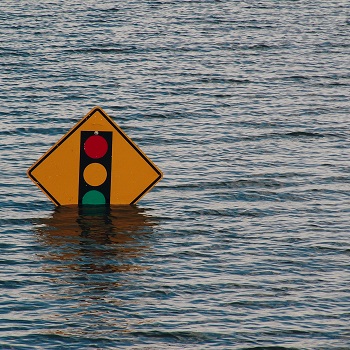The Kosovo Ruling and Obstacles to Enlargement
Last week’s ruling by the International Court of Justice (ICJ) that Kosovo’s 2008 declaration of independence did not contravene international law was bitter news for Serbia, which had brought the original case. The Serbian president Boris Tadic said that his country could never accept the unilateral declaration of independence, while for Kosovo’s ethnic Albanians it was the breakthrough they had been seeking. For everyone the episode was another reminder of how deep the streams of identity and history flow in the Balkans.
After many hours of COREPER discussion following the ICJ ruling High Representative Catherine Ashton issued a carefully crafted statement on behalf of the Council accepting the Hague ruling as opening a “new phase” for Serbia and Kosovo and offering to “facilitate a process of dialogue” between Belgrade and Pristina. Ministers will be discussing the situation at next Tuesday’s foreign affairs Council. (Enlargement is not the responsibility of the High Representative, while Kosovo is).
It does seem remarkable that the EU has managed to sustain a coherent and highly active policy towards Kosovo despite deep divisions on the legality of independence. Of the 27 member states, Cyprus, Greece, Romania, Slovakia and Spain still refuse to recognise Kosovo because of possible implications for their own troublesome regions, yet all five have given their full support to a policy which has made the country virtually an EU protectorate.
EU membership is the clear long-term objective for all the Balkan states, and must be the ultimate framework for resolving the divisions across the Balkans, but it will not be achieved any time soon. So many factors militate against rapid progress towards enlargement, although Croatia is keen to conclude negotiations by the end of 2010 with a view to accession by the end of June 2011.
Even Croatia’s timetable looks ambitious. Public opinion within the EU shows little enthusiasm for further enlargement and there is no appetite within member states to admit candidate countries which have still to resolve issues such as domestic corruption or organised crime.
The Bulgaria/Rumania experiment, which assumed that reform would be more easily achieved once a candidate had become a member state, will not be repeated. Candidate countries will have to demonstrate that they have taken the steps to meet the Copenhagen criteria well in advance of becoming EU members.
Then there are the political issues which block progress. For instance Turkey’s refusal to admit Greek Cypriot vessels in Turkish ports under the Ankara protocol has slowed the negotiations on Turkish accession. A successful conclusion to the UN-sponsored talks on the future of Cyprus would unblock this logjam, but there is not much optimism for a rapid outcome. There will be intense debate on whether the ICJ ruling on Kosovo could set a precedent for the Turkish community of Cyprus.
Of the other Balkan states, Macedonia’s application for membership is blocked by Greece on the nomenclature issue; the Commission is working on reports on Albania and Montenegro which have applied for membership; Bosnia-Herzegovina has far to go in reforming its own constitution before applying for membership; while the Council has not requested an opinion on Serbia.
That leaves Iceland, whose talks on accession to the European Union will be formally launched next Tuesday July 27, in preparation for substantive negotiations to begin in September or October.
So maybe Iceland could be offered a fast track towards joining the EU. Fisheries and whaling are bound to be the key issues in these negotiations and maybe the catalyst for the fundamental reform of the common fisheries policy which is so urgently needed, but any deal must satisfy the people of Iceland in a referendum. It doesn’t seem an easy recipe for success. To say nothing of the quarrel with the UK and Netherlands over compensation for evaporated savings accounts. Perhaps that can be resolved by September, when we will talk again!
Find Out More
-
Why Europe needs a water resilience strategy
February 8, 2024
-
Why the EU can’t risk failure at COP27
November 4, 2022


